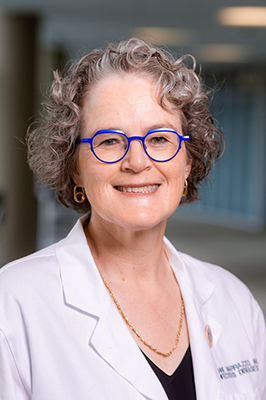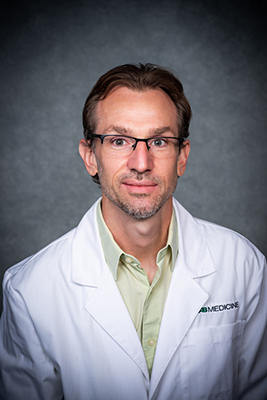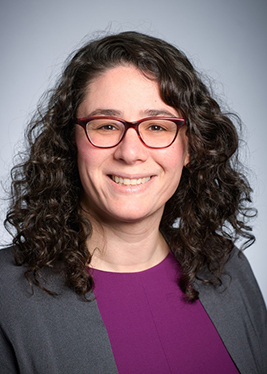 The effort led by UAB is projected to receive $17 million from NIH to support up to four years of patient follow-up.The University of Alabama at Birmingham will lead a consortium of three sites for participation in a nationwide study that seeks to understand why some people have prolonged symptoms (referred to as long COVID or post-acute sequelae of SARS-CoV-2, also called PASC) or develop new or returning symptoms after the acute phase of SARS-CoV-2 infection.
The effort led by UAB is projected to receive $17 million from NIH to support up to four years of patient follow-up.The University of Alabama at Birmingham will lead a consortium of three sites for participation in a nationwide study that seeks to understand why some people have prolonged symptoms (referred to as long COVID or post-acute sequelae of SARS-CoV-2, also called PASC) or develop new or returning symptoms after the acute phase of SARS-CoV-2 infection.
Researchers at the Marnix E. Heersink School of Medicine and UAB School of Public Health will enroll 900 adult COVID-19 survivors from the Birmingham and Mobile, Alabama, and New Orleans, Louisiana, areas in the study, which is called the Deep South SARS-CoV-2 Recovery Cohort. This study is part of the National Institutes of Health “Researching COVID to Enhance Recovery” (RECOVER) Initiative.
UAB is one of only 15 sites throughout the United States and will serve as a lead recruitment site based upon the extensive clinical and research efforts done in response to the pandemic. The institution draws on regional partnerships through the Center for Clinical and Translational Science to engage the University of South Alabama and Louisiana State University Health Sciences Center in the RECOVER Initiative’s implementation phase.
The effort led by UAB is projected to receive $17 million from NIH to support up to four years of patient follow-up.
 Jeanne Marrazzo, M.D.The most common lingering symptoms that characterize long COVID include pain, headaches, fatigue, “brain fog,” shortness of breath, anxiety, depression, fever, chronic cough and sleep problems.
Jeanne Marrazzo, M.D.The most common lingering symptoms that characterize long COVID include pain, headaches, fatigue, “brain fog,” shortness of breath, anxiety, depression, fever, chronic cough and sleep problems.
“SARS-CoV-2 has been a challenge in so many ways, not the least of which is the conundrum of long COVID, or PASC,” said Jeanne Marrazzo, M.D., director of the Division of Infectious Diseases and lead investigator for the project. “We don’t fully understand why only some people are affected, and we don’t know what really causes it; for these reasons, our ability to relieve the life-limiting symptoms it causes is really compromised. We are hopeful that the knowledge we gain from the RECOVER study will help us figure these things out.”
Delta variant’s role
In keeping with recent trends, RECOVER will include a strong focus on assessing long COVID in those with the Delta variant and in previously immunized individuals.
Investigators from many disciplines at UAB and partner sites will study what causes long-term symptoms, how best to treat the broad spectrum of PASC that manifests in the most-affected patients and how to prevent or limit symptom onset in others.
Children and pregnant women will be studied at other centers.
Learning the scope of the problem
The UAB RECOVER team will administer questionnaires to participants on a quarterly basis to document how they are feeling. From that starting point, other investigations will ensue.
 Nathaniel Erdmann, M.D., Ph.D.“What we now appreciate about long COVID, or PASC, is that this is not a singular process, but rather a collection of symptoms and syndromes,” said Nathaniel Erdmann, M.D., Ph.D., assistant professor in the Division of Infectious Diseases and co-principal investigator. “The study is designed to conduct more comprehensive testing for those individuals experiencing specific types of symptoms. This large collaborative effort will help determine the shared characteristics of those with PASC and what factors trigger distinct symptoms. With this knowledge, we will be in a much better position to determine appropriate treatment and interventions.”
Nathaniel Erdmann, M.D., Ph.D.“What we now appreciate about long COVID, or PASC, is that this is not a singular process, but rather a collection of symptoms and syndromes,” said Nathaniel Erdmann, M.D., Ph.D., assistant professor in the Division of Infectious Diseases and co-principal investigator. “The study is designed to conduct more comprehensive testing for those individuals experiencing specific types of symptoms. This large collaborative effort will help determine the shared characteristics of those with PASC and what factors trigger distinct symptoms. With this knowledge, we will be in a much better position to determine appropriate treatment and interventions.”
Brain fog and other neurological symptoms have been documented in patients who recovered from COVID-19. A small group of Deep South cohort participants will have intensive work-ups including MRIs and spinal taps to understand what causes these symptoms to develop or persist in some patients.
The research team will also examine:
- Social determinants, such as ethnicity and income, and how they might impact PASC and its persistence.
- Psychological disorders induced by COVID-19 disease.
- Metabolic issues and dysfunction of cellular power plants called mitochondria.
- Organ injury, with emphasis on the heart, lungs and kidneys.
Springboard to further investigations
The RECOVER Initiative of NIH will follow participants and collect samples, which then are used to support science that is funded outside the initiative.
 Emily B. Levitan, Sc.D., “The Deep South SARS-CoV-2 Recovery Cohort and the other components of the RECOVER Initiative are designed to answer a broad range of questions about PASC, from the cell level to the population level,” said Emily B. Levitan, Sc.D., professor of epidemiology in the School of Public Health and co-principal investigator. “The information we collect will be available to many different scientists who are working to increase understanding of PASC and develop treatments for it.”
Emily B. Levitan, Sc.D., “The Deep South SARS-CoV-2 Recovery Cohort and the other components of the RECOVER Initiative are designed to answer a broad range of questions about PASC, from the cell level to the population level,” said Emily B. Levitan, Sc.D., professor of epidemiology in the School of Public Health and co-principal investigator. “The information we collect will be available to many different scientists who are working to increase understanding of PASC and develop treatments for it.”
Vaccination and benefit
One of today’s burning questions is whether COVID-19 vaccination protects recipients against long COVID.
The RECOVER Initiative, funded by NIH at nearly $470 million, is the start of addressing a massive, long-term problem. The U.S. Centers for Disease Control and Prevention data tracker in September reported that the nation had reached 40 million cases of COVID-19 since the pandemic began. Millions of other cases undoubtedly have gone untested and unreported.
To participate, click here.
